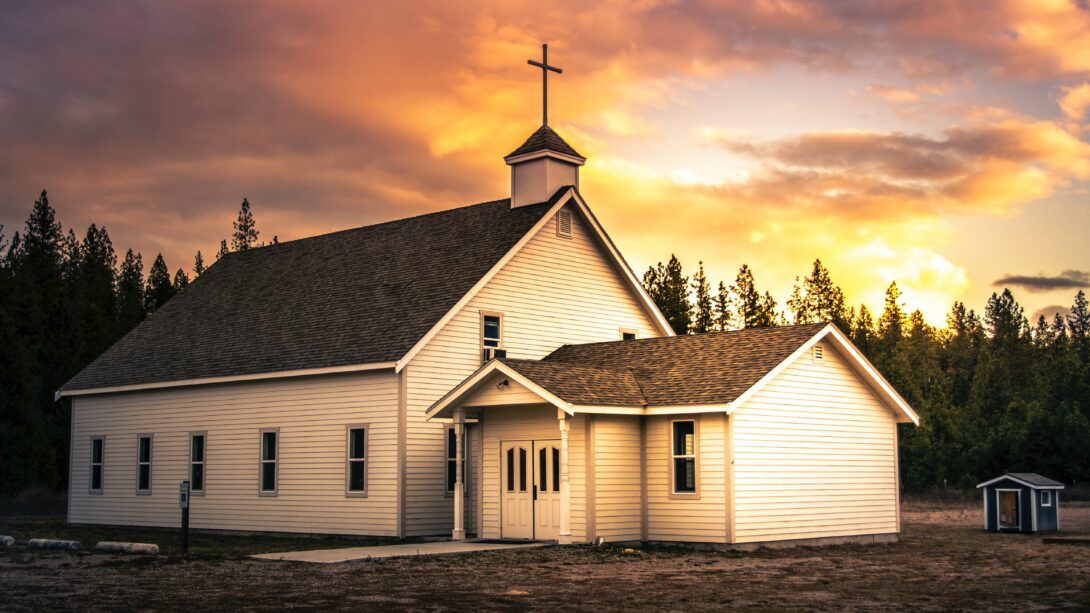Is there any part of God’s moral law more misunderstood or ignored by Christians than the fourth commandment? Maybe the second or the seventh, but it is evident that the fourth commandment has fallen on hard times among many Christians. In fact, the fourth commandment is so misunderstood that people continue to confess Christ and claim to follow him while they unashamedly continue to disobey the fourth missing its goodness. They assume they can have deep intimacy with God apart from obedience to the fourth. It’s strange. It’s dangerous.
Perhaps the fourth is more obvious than we think. Here’s what our God said in Exodus 20:8–11:
Remember the Sabbath day, to keep it holy. 9 Six days you shall labor, and do all your work, 10 but the seventh day is a Sabbath to the Lord your God. On it you shall not do any work, you, or your son, or your daughter, your male servant, or your female servant, or your livestock, or the sojourner who is within your gates. 11 For in six days the Lord made heaven and earth, the sea, and all that is in them, and rested on the seventh day. Therefore the Lord blessed the Sabbath day and made it holy.
Notice that the fourth commandment is rooted in God’s creative acts at the beginning of the world. To argue that the fourth commandment is merely part of the Mosaic Law which Christ fulfilled and is no longer in force is entirely missing the point that Sabbath rest is rooted in creation.
Consider the state of our society and culture. People are too busy. People are stressed out and quite anxious. People are working too much and too little, they’re burning out and unsatisfied, they’re depressed and detached. With gluttonous zeal, people binge on entertainment yet continue to feel empty and overwhelmed, and they don’t know how to truly rest. Might at least a little of the blame for these countless societal problems be attributed to the fact that the majority of people outside the church, and I would add some people inside the church as well, disregard God’s commandment to rest and worship? What if Christians began to experience the immeasurable benefit of the fourth commandment by taking it seriously? What might the impact be on the spiritual maturity, emotional stability, and work ethic of Christians if we received God’s gift of Sabbath rest with more confidence and delight?
What exactly is God commanding in the fourth? Heidelberg 103 addresses this:
What does God require in the fourth commandment? First, that the ministry of the gospel and the schools be maintained and that, especially on the day of rest, I diligently attend the church of God to hear God’s Word, to use the sacraments, to call publicly upon the LORD, and to give Christian offerings for the poor. Second, that all the days of my life I rest from my evil works, let the LORD work in me through His Holy Spirit, and so begin in this life the eternal sabbath.
The fourth requires that local churches continue the preaching of the law and gospel for the benefit of the congregation. Every member of a local church is duty-bound to diligently attend corporate worship to benefit from God’s provision of grace. They must attend corporate worship weekly to:
1. Hear God’s Word.
God provides His marvelous grace through the preaching of His Word. His Word is life-giving, and it is not enough to read it at home. In fact, personal devotions are a distant second place to the preaching of God’s Word in corporate worship.
2. Use the sacraments.
Sacraments are means of grace. They assure, comfort, and strengthen faith in God’s people. God gives the sacraments to the church which prove to be an immense help. Neglecting the sacraments in corporate worship is not only a serious sin, it is spiritual anorexia.
3. Call publically on the LORD.
Corporate prayer is vital. Zacharias Ursinus said, “for God will not only be invoked by every one privately, but also publicly by the whole church, for his own glory and our comfort.” [1] Corporate prayer is a means of grace. We pray together for God’s glory and our comfort.
4. Give Christian offerings for the poor.
We ought to give money to our church for care of the poor. God calls us to love our brothers and sisters sacrificially. It is important that we bear one another’s burdens including financial burdens.
Additionally, the Sabbath is about resting from our evil works and ordinary labors. The Christian Sabbath is a weekly vacation from ordinary routines in order to find deep rest and comfort in Christ.
I think it would profit us, brothers and sisters, to meditate on Isaiah 56:2 which says “Blessed is the man who does this, and the son of man who holds it fast, who keeps the Sabbath, not profaning it, and keeps his hand from doing any evil.” Keep the Sabbath holy and you will be blessed.
Also consider Isaiah 58:13–14:
If you turn back your foot from the Sabbath, from doing your pleasure on my holy day, and call the Sabbath a delight and the holy day of the Lord honorable; if you honor it, not going your own ways, or seeking your own pleasure, or talking idly; 14 then you shall take delight in the Lord, and I will make you ride on the heights of the earth; I will feed you with the heritage of Jacob your father, for the mouth of the Lord has spoken.
Could it be that our enjoyment of God and rest of our souls is greatly diminished precisely because we do not honor the Sabbath? Maybe using the Sabbath to pursue our own pleasures instead of God through worship and rest is actually detrimental to our spiritual health and growth. God will bless us when we obey His commandments.
My challenge to you is to ask yourself the question: How does God want me to best use the Sabbath for His glory and my good? Honoring and keeping the Sabbath holy comes with great benefits, benefits that many of us haven’t yet tapped into. Together, let’s think about how our God wants to bless us on His special day.
[1] Zacharias Ursinus, trans. Rev. G. W. Williard, ed. Eric D. Bristley, The Commentary of Dr. Zacharias Ursinus on the Heidelberg Catechism (RCUS: 2004), 1005.
Quotes from the Heidelberg Catechism and creeds are taken from Zacharias Ursinus & Jonathan Shirk, The Heidelberg Catechism: True Comfort for Life & Death (Manheim: Small Town Theologian, 2021), 395.
Scripture quotations are from the ESV® Bible (The Holy Bible, English Standard Version®), copyright © 2001 by Crossway, a publishing ministry of Good News Publishers. Used by permission. All rights reserved. May not copy or download more than 500 consecutive verses of the ESV Bible or more than one half of any book of the ESV Bible.



